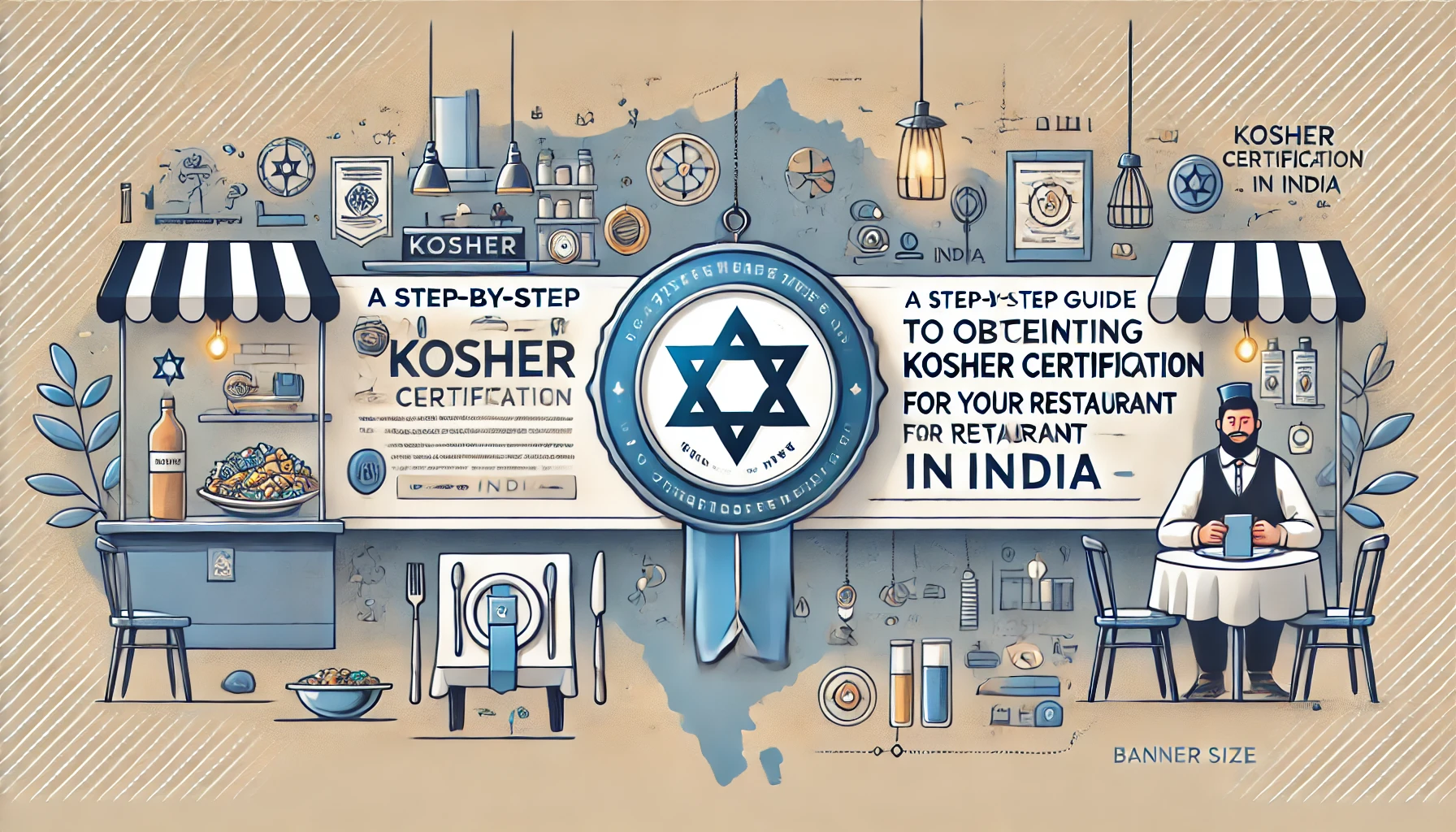For restaurants in India, kosher certification is becoming increasingly important as the demand for kosher food grows both locally and internationally. This certification not only serves the Jewish community but also appeals to those seeking high standards of food quality and hygiene. In this guide, we will walk you through the process of obtaining kosher certification for your restaurant in India, ensuring you meet all the required guidelines and improve your restaurant’s credibility and marketability.
What is Kosher Certification?
Kosher certification signifies that food has been prepared according to Jewish dietary laws, known as kashrut. These laws regulate what foods can be eaten, how they must be prepared, and the utensils that can be used. For restaurants, receiving this certification assures customers that their meals meet the strict kosher guidelines, from sourcing to preparation.
Why is Kosher Certification Important for Indian Restaurants?
In India, where cultural diversity thrives, meeting the dietary needs of various communities can set your restaurant apart. Obtaining kosher certification allows you to cater not only to the Jewish community but also to health-conscious consumers who trust kosher standards. Furthermore, with the growing global demand for kosher products, this certification can open up new international markets for your restaurant’s offerings.
Benefits of Kosher Certification in India
- Expanded customer base: Appeal to kosher-keeping individuals and others who prefer high food safety standards.
- International reach: Kosher-certified restaurants can easily export food items to countries with a high demand for kosher food.
- Improved trust and credibility: Customers know they can trust the quality and preparation of kosher-certified meals.
Step-by-Step Process to Obtain Kosher Certification for Your Restaurant
1. Understand the Kosher Laws
Before you begin the certification process, familiarize yourself with the core principles of kosher laws. These laws are based on religious guidelines found in the Torah and include:
- Separation of meat and dairy: Kosher law mandates that meat and dairy products must be kept separate during preparation, cooking, and serving.
- Permissible animals: Only specific animals (e.g., cows, sheep, and goats for meat; certain fish like salmon and tuna) are allowed. Pork and shellfish are strictly prohibited.
- Shechita: The ritual slaughter process for meat must be performed by a trained Jewish individual, following a specific method to ensure the animal is kosher.
2. Choose a Kosher Certification Agency
Selecting the right kosher certification agency is crucial. Different agencies have varying levels of recognition, so it is important to work with a reputable one. In India, popular kosher certifiers include:
- Orthodox Kosher Supervision (OKS)
- Kosher India
- Kosher Certification Services India
Each agency has its own certification standards, application processes, and fees, so researching each is essential before making a decision.
3. Schedule an Inspection of Your Restaurant
Once you’ve selected a kosher certification agency, the next step is scheduling an inspection of your restaurant. This inspection will assess whether your kitchen, food sourcing, preparation methods, and storage facilities meet kosher requirements.
During this stage:
- Meat and dairy must be completely separated.
- Utensils and cooking equipment for meat and dairy products must be distinct and should never mix.
- Any ingredients used in your restaurant will also be examined for their kosher status. You will need to source ingredients that are kosher-certified, such as kosher meat, poultry, and specific kosher wines.
4. Implement Necessary Changes
The inspection will likely result in some changes that need to be made in your kitchen or restaurant operations. Some common adjustments include:
- Labeling storage areas to ensure that meat and dairy products are kept in separate locations.
- Purchasing new utensils and cookware dedicated to either meat or dairy preparation.
- Training your staff on kosher food preparation and handling procedures.
Make sure your staff is aware of the importance of kosher guidelines and is fully trained on how to follow them. Any violation of kosher laws during meal preparation could invalidate your certification.
5. Maintain Kosher Practices
Once your restaurant has passed the inspection and received kosher certification, maintaining kosher practices is essential to retaining the certification. Ongoing supervision may be required by some certifying agencies, with regular inspections conducted to ensure compliance with kosher laws.
This ongoing process may involve:
- Continuous training for your kitchen staff.
- Regular audits from the certification agency to ensure the restaurant remains compliant.
- Strict adherence to ingredient sourcing, meal preparation, and serving practices.
6. Market Your Kosher Certification
Once you’ve obtained kosher certification, leverage this to market your restaurant and attract new customers. Include the kosher certification logo in your branding, menus, and promotional materials. Highlight your certification on your website and social media platforms, emphasizing your commitment to quality and compliance with kosher dietary laws.
7. Renew Your Certification
Most kosher certifications require periodic renewal. Ensure that you understand the renewal process and deadlines to keep your certification up to date. This typically involves re-inspection and continued adherence to kosher guidelines.
Common Challenges When Applying for Kosher Certification
Though obtaining kosher certification can provide significant benefits, it’s important to be aware of the challenges you may face. These include:
- Sourcing kosher ingredients: Some ingredients may be difficult to find in India, and sourcing certified kosher products might require extra effort.
- Operational changes: The need to maintain separate kitchens for meat and dairy can be challenging, especially for smaller restaurants.
- Ongoing compliance: Maintaining compliance with kosher laws requires a long-term commitment and may involve regular inspections by the certification agency.
Conclusion
Getting kosher certification for your restaurant in India can be a complex process, but the benefits far outweigh the challenges. By understanding kosher laws, selecting a reputable certification agency, preparing for inspections, and maintaining compliance, you can open your restaurant to new markets and elevate its reputation.
